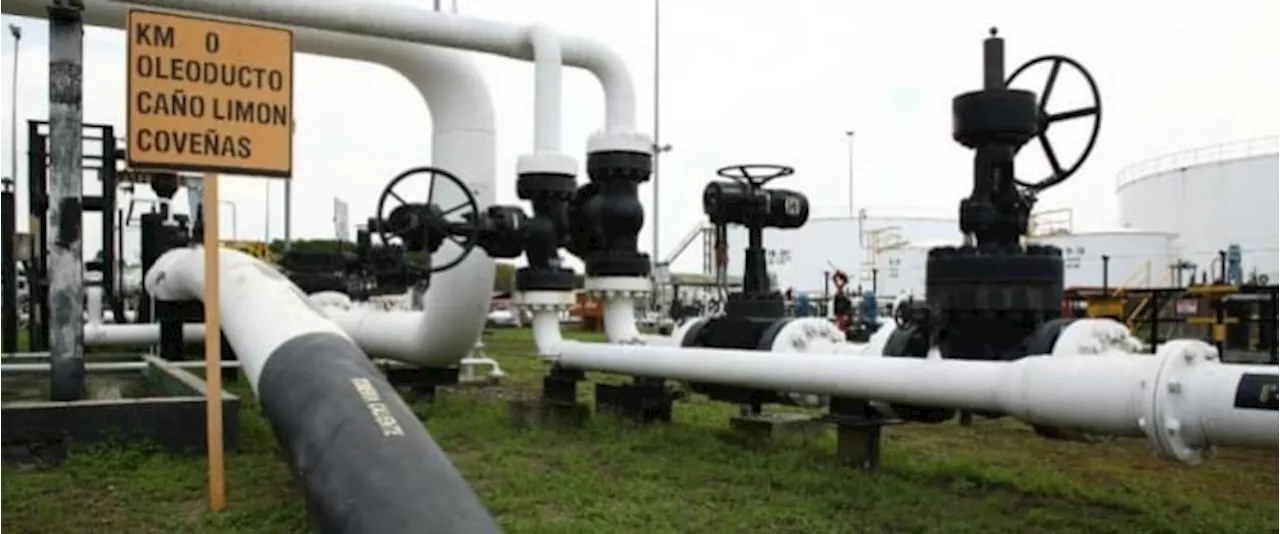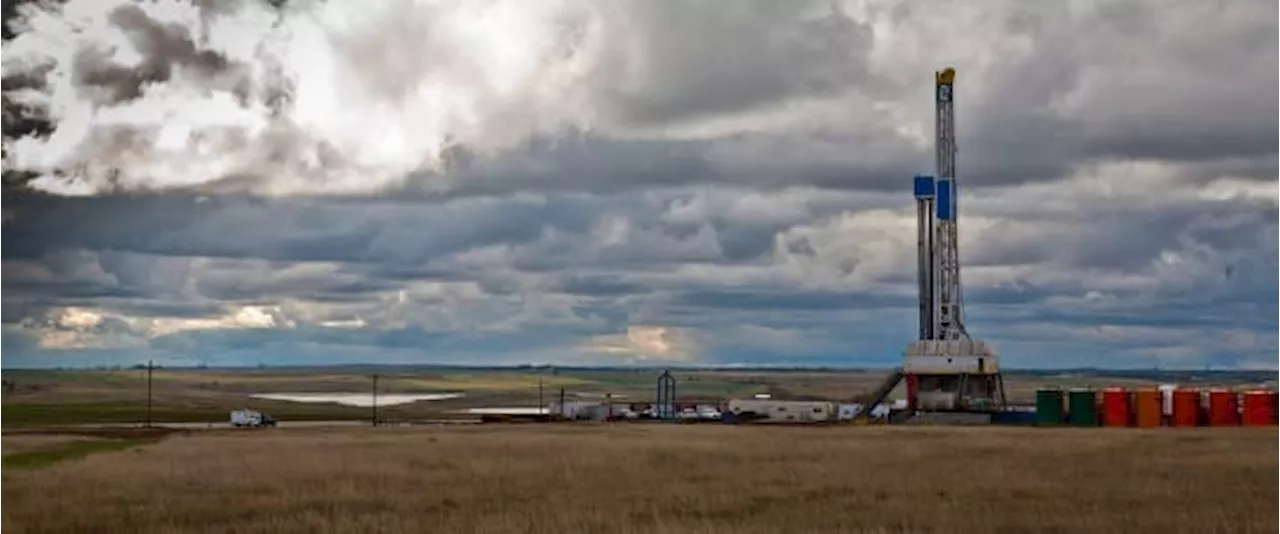Oil prices saw a temporary decline following the withdrawal of threatened sanctions against Colombia. However, concerns remain about potential trade wars and their impact on oil supply and prices, particularly if tariffs are imposed on Canadian oil imports.
Oil prices took a dip on Monday after the Trump administration backed off from imposing sanctions on Colombia due to its handling of illegal immigration. The threat of sanctions had raised concerns about potential disruptions to oil supply. Washington reversed its course quickly after Colombia agreed to accept deported migrants from the United States.
While the immediate crisis has been averted, the incident has left the market on edge, reflecting a growing unease about Trump's unpredictable trade policies. Trump has repeatedly threatened to impose 25% tariffs on all imports from Canada and Mexico, citing their failure to control the flow of drugs and migrants across the border. Canadian oil imports would not be exempt from these tariffs. Experts warn that such tariffs would have a significant impact on American consumers, driving up fuel prices and destabilizing the U.S.'s biggest crude oil supplier.Commodity analysts at Standard Chartered painted a bleak picture of the potential consequences. They pointed out that Midwest oil buyers would likely bear the brunt of any tariffs on Canadian crude, mainly because Canadian heavy crude oil is difficult to replace with other types of oil. This limited substitutability would lead to a direct increase in retail gasoline prices. Their analysis revealed that the U.S. imported 6.6 million barrels per day of crude oil in the first 10 months of 2024, with 4 million barrels being heavy crude used in refineries with cracking units. Canada supplied a staggering 75% of this heavy crude, its market share having steadily climbed since 2000, pushing out imports from Mexico, Venezuela, and Colombia.The problem for Midwest refineries is that heavy crude oil cannot be easily substituted with the lighter crude that makes up most of U.S. shale oil production. Switching to lighter crude would disrupt the highly specialized cracking units in these refineries, which are designed to process heavy residue obtained through simple distillation. Canada has supplied 99.89% of all heavy crude imports into Midwest refineries over the past decade. This dependence on Canadian oil means that any tariff would likely be passed directly onto consumers in the form of higher gasoline prices. Analysts predict that Midwest consumers could face a 10% increase in gasoline prices if Trump implements his tariffs.Interestingly, the looming trade wars under a potential second Trump administration haven't deterred Canadian oil and gas giants from planning further expansion. Suncor Energy, a major Canadian oil sands producer, announced plans to boost oil and gas output next year. The company aims to increase production to between 810,000 and 840,000 barrels per day in 2025, up from an estimated range of 770,000 to 810,000 barrels per day in 2024. Suncor also anticipates annual refining utilization of 93% to 97%. The company plans to invest between C$6.1 billion to C$6.3 billion in capital expenditures in 2025, with 45% allocated to economic investments. This represents a slight decrease from the C$6.3 billion to C$6.5 billion planned for 2024. Suncor attributes its lower cash operating costs per barrel to initiatives aimed at reducing its corporate WTI breakeven by $10 per barrel compared to 2023.Canada's Imperial Oil and Cenovus Energy have also unveiled similar expansion plans, defying the trend of major oil companies fleeing Canada's oil sands. Canadian oil and gas stocks have been outperforming their American counterparts, with the S&P/TSX Equal Weight Oil & Gas Index returning 17.6% year-to-date, compared to a 4.3% gain by the S&P 500 Energy Sector.Despite growing pressure from investors and environmentalists to shift away from fossil fuels, the Canadian government remains committed to its oil industry. Alberta Premier Danielle Smith declared that the energy-rich province will transition away from emissions, not oil. 'We're transitioning away from emissions, we're not transitioning away from oil and gas. We're not going to phase out production of oil and natural gas, we're just going to change the way in which we use it,' Smith said at the World Petroleum Congress in Calgary, Alberta
Energy OIL PRICES TRUMP ADMINISTRATION CANADA MEXICO TARIFFS TRADE WARS ENERGY OIL SUPPLY COLOMBIA
United Kingdom Latest News, United Kingdom Headlines
Similar News:You can also read news stories similar to this one that we have collected from other news sources.
 Diamondback Energy Sees Lower Oil Prices, Higher Natural Gas Prices in Q4Diamondback Energy reported lower oil prices and higher natural gas prices in the fourth quarter of 2023. The company's average realized crude oil price fell to $69.48 per barrel from $73.13 per barrel in the third quarter, while the average realized natural gas price surged by approximately 30%. Diamondback, like other shale majors, is looking to capitalize on the anticipated increase in natural gas demand driven by the growth of artificial intelligence (AI).
Diamondback Energy Sees Lower Oil Prices, Higher Natural Gas Prices in Q4Diamondback Energy reported lower oil prices and higher natural gas prices in the fourth quarter of 2023. The company's average realized crude oil price fell to $69.48 per barrel from $73.13 per barrel in the third quarter, while the average realized natural gas price surged by approximately 30%. Diamondback, like other shale majors, is looking to capitalize on the anticipated increase in natural gas demand driven by the growth of artificial intelligence (AI).
Read more »
 Crude Oil Prices Remain Stable Despite Predictions of Lower PricesCrude oil prices stabilized today following a dip on Tuesday after the release of the Energy Information Administration's (EIA) latest Short-Term Energy Outlook. The EIA predicted lower oil prices for this year and next, citing expectations of increased production from both OPEC and non-OPEC countries. While Brent crude and West Texas Intermediate initially dipped, they later rebounded, with Brent crude exceeding $80 per barrel and WTI approaching $79 per barrel. The EIA forecasts global oil production to increase by 1.8 million barrels daily this year and another 1.5 million barrels daily in 2026. However, the agency also predicts that oil consumption will grow at a slower rate, potentially impacting price stability.
Crude Oil Prices Remain Stable Despite Predictions of Lower PricesCrude oil prices stabilized today following a dip on Tuesday after the release of the Energy Information Administration's (EIA) latest Short-Term Energy Outlook. The EIA predicted lower oil prices for this year and next, citing expectations of increased production from both OPEC and non-OPEC countries. While Brent crude and West Texas Intermediate initially dipped, they later rebounded, with Brent crude exceeding $80 per barrel and WTI approaching $79 per barrel. The EIA forecasts global oil production to increase by 1.8 million barrels daily this year and another 1.5 million barrels daily in 2026. However, the agency also predicts that oil consumption will grow at a slower rate, potentially impacting price stability.
Read more »
 Oil Prices Fall After Colombia's Tariff Threat Is ReversedOil prices retreated on Monday after the Trump administration pulled back from sanctions threats against Colombia over illegal immigration, alleviating concern about oil supply disruptions.
Oil Prices Fall After Colombia's Tariff Threat Is ReversedOil prices retreated on Monday after the Trump administration pulled back from sanctions threats against Colombia over illegal immigration, alleviating concern about oil supply disruptions.
Read more »
 Yorkshire House Prices Rise Despite National DipThe average house price in Yorkshire increased in November, bucking the national trend. Despite a slight drop in average house prices across the UK, Yorkshire and the Humber saw a 0.8 percent increase compared to October, reaching an average price of £214,636. Doncaster experienced the highest annual growth at 6.7 percent, while Barnsley saw the smallest increase at 1.9 percent.
Yorkshire House Prices Rise Despite National DipThe average house price in Yorkshire increased in November, bucking the national trend. Despite a slight drop in average house prices across the UK, Yorkshire and the Humber saw a 0.8 percent increase compared to October, reaching an average price of £214,636. Doncaster experienced the highest annual growth at 6.7 percent, while Barnsley saw the smallest increase at 1.9 percent.
Read more »
 China's Manufacturing Contracts in January, Copper Prices Dip While Iron Ore RisesChina's manufacturing activity contracted in January, according to official data released on Monday. While a contraction before the Lunar New Year is common, the PMI reading of 49.1 was the lowest since August. This news led to a decline in copper prices, while iron ore surged due to uncertainty surrounding US tariffs and hopes for Chinese stimulus measures. In other news, shares of Nvidia are falling after a new Chinese AI model, DeepSeek's R1, demonstrated comparable performance to rivals with significantly lower processing power requirements.
China's Manufacturing Contracts in January, Copper Prices Dip While Iron Ore RisesChina's manufacturing activity contracted in January, according to official data released on Monday. While a contraction before the Lunar New Year is common, the PMI reading of 49.1 was the lowest since August. This news led to a decline in copper prices, while iron ore surged due to uncertainty surrounding US tariffs and hopes for Chinese stimulus measures. In other news, shares of Nvidia are falling after a new Chinese AI model, DeepSeek's R1, demonstrated comparable performance to rivals with significantly lower processing power requirements.
Read more »
 Colombia Tariff Threat Highlights Oil Price SensitivityPresident Trump threatened 25% tariffs on all Colombian imports to pressure the Colombian government into accepting the return of illegal migrants, which led to an immediate concession.
Colombia Tariff Threat Highlights Oil Price SensitivityPresident Trump threatened 25% tariffs on all Colombian imports to pressure the Colombian government into accepting the return of illegal migrants, which led to an immediate concession.
Read more »
